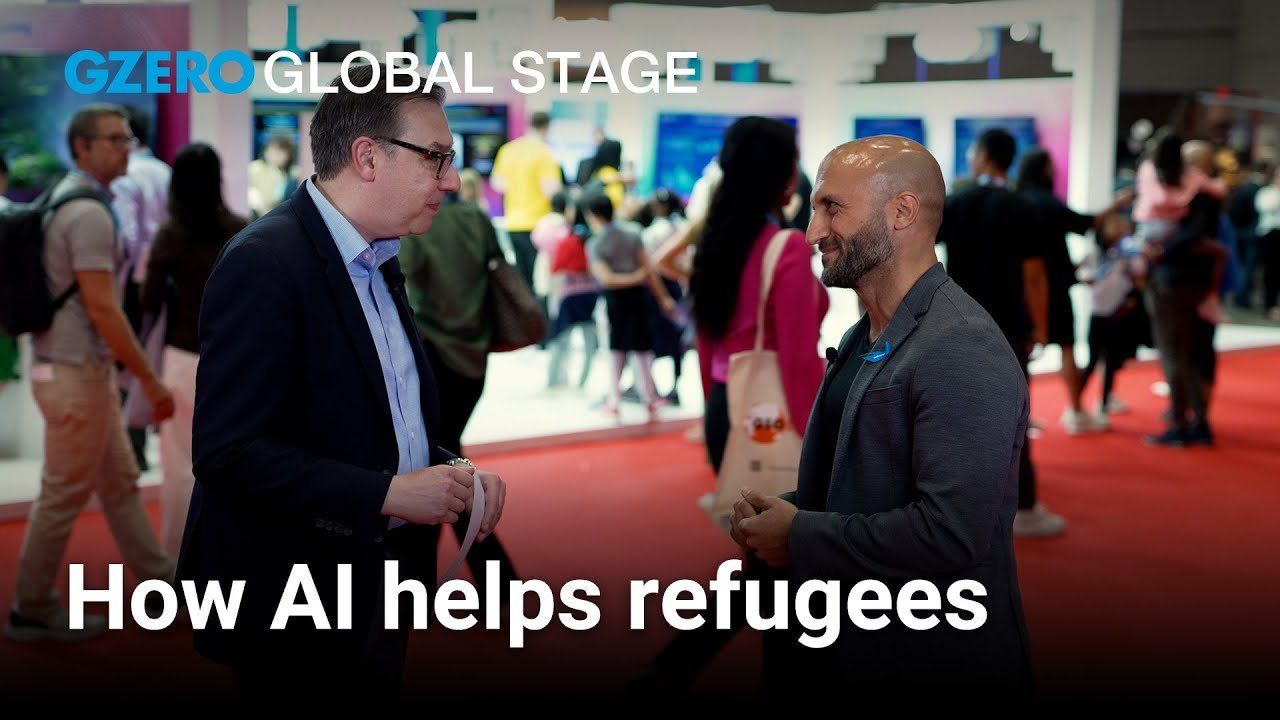July 10, 2025
“Tech is a means to an end, not the end itself,” says Hovig Etyemezian, head of UNHCR’s Innovation Service.
Speaking to GZERO's Tony Maciulis at the 2025 AI for Good Summit in Geneva, Etyemezian explains how technology is helping address one of the world’s most urgent challenges: the record number of forcibly displaced people. As conflicts rise and resources shrink, UNHCR is using data, AI, and digital tools to improve services and empower refugee communities, but only when designed with those communities, not for them.
From funding refugee-led innovation to expanding digital literacy and connectivity, the agency is bridging analog proximity with digital solutions. But risks remain. “We never test technologies on people. We design solutions with people,” he says, emphasizing ethics, consent, and inclusion at every step.
This conversation is presented by GZERO in partnership with Microsoft, from the 2025 AI for Good Summit in Geneva, Switzerland. The Global Stage series convenes global leaders for critical conversations on the geopolitical and technological trends shaping our world.
From Your Site Articles
More For You
TOKYO, JAPAN - FEBRUARY 8: Japan's Prime Minister Sanae Takaichi, leader of the ruling Liberal Democratic Party (LDP), places a red paper rose on the name of an elected candidate at the LDP headquarters on general election day on February 08, 2026 in Tokyo, Japan. Voters across the country headed to polls today as Japan's Lower House election was held.
Photo by Kim Kyung-Hoon - Pool/Getty Images
When Japanese Prime Minister Sanae Takaichi called snap elections last month, it was a big gamble. Holding a winter election just four months into her tenure with no real policy record to run on?
Most Popular
What's Good Wednesdays
What’s Good Wednesdays™, February 11, 2026
Sponsored posts
Football wins, local economy scores
Walmart sponsored posts
Walmart’s $1 billion investment is strengthening associate careers
Tune in on Saturday, February 14th at 12pm ET/6pm CET for the live premiere of our Global Stage from the 2026 Munich Security Conference, where our panel of experts takes aim at the latest global security challenges.
Microsoft unveiled a new set of commitments guiding its community‑first approach to AI infrastructure development. The strategy focuses on energy affordability, water efficiency, job creation, local investment, and AI‑driven skilling. As demand for digital infrastructure accelerates, the company is pushing a new model for responsible datacenter growth — one built on sustainability, economic mobility, and long‑term partnership with the communities that host it. The move signals how AI infrastructure is reshaping local economies and what people expect from the tech shaping their future. Read the full blog here.
Armed Israeli soldiers walk through an alley in the Old City of Hebron, in the occupied West Bank, on February 7, 2026. The Israeli army routinely secures routes and gathering points when settlers visit the city.
Photo by Mosab Shawer/Middle East Images/StringersHub/Sipa USA
The Israeli government unilaterally passed measures that allow Jewish settlers to purchase land in the West Bank, overriding past laws that effectively banned the sale of property there to anyone other than Palestinian residents.
© 2025 GZERO Media. All Rights Reserved | A Eurasia Group media company.
